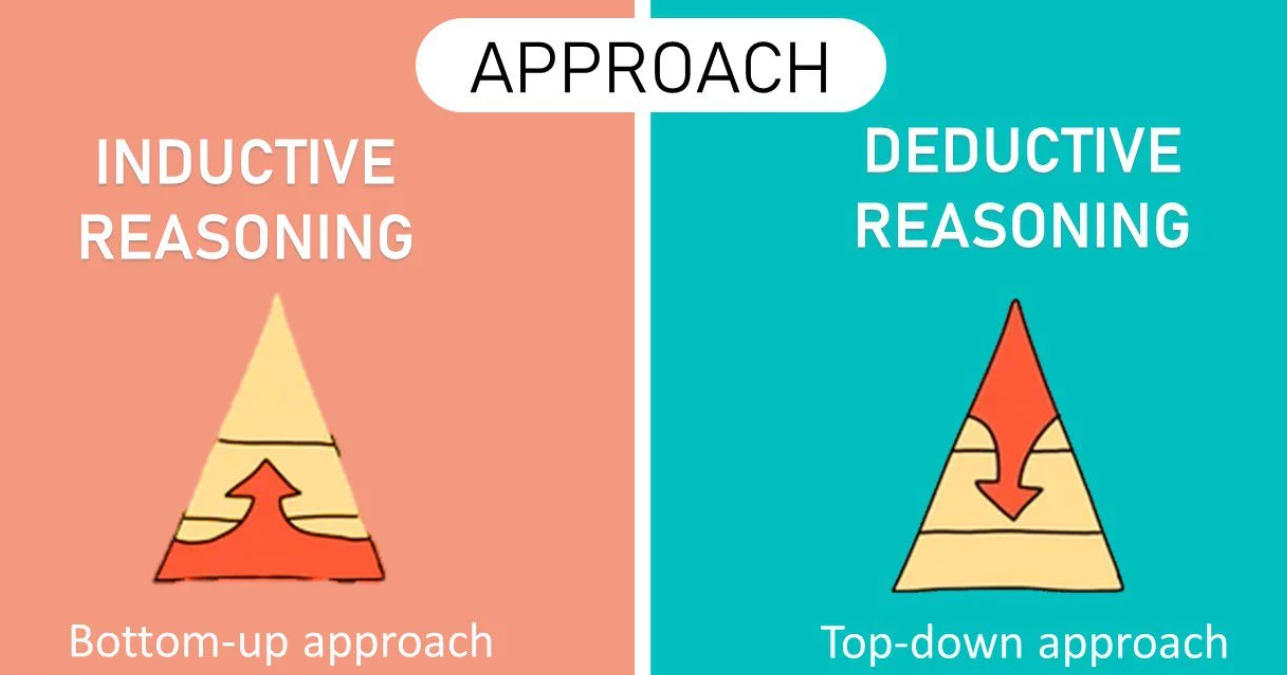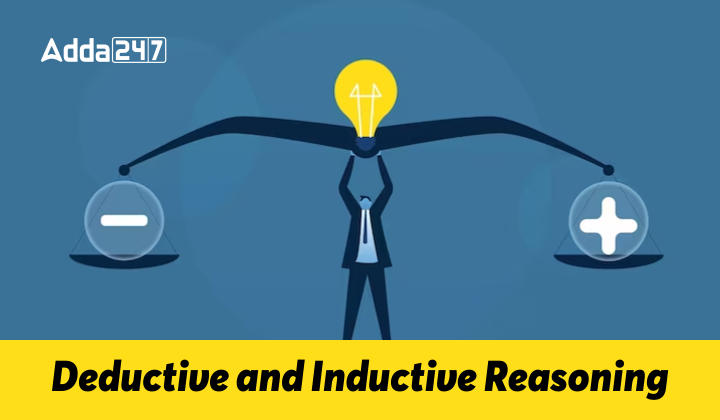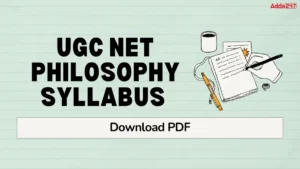Table of Contents
Reasoning refers to the process that helps us go beyond the information because sometimes full information cannot be expressed by given words. It is of two types inductive and deductive. Distinguishing these two become difficult for the learners until and unless they understand the different terminologies and concepts associated with those terminologies. The topic of inductive and deductive reasoning is very crucial from the UGC NET exam point of view. Read the article below to get deeper insights on the topic:
Deductive Reasoning
Deductive reasoning is based on the idea that the facts that are true are used to prove that the conclusion is true. These truths are widely accepted norms, rules, and theories. In deductive reasoning, the conclusion is presumed to be absolutely true depending on the logic of the premises. Major features of deductive reasoning are:
- It starts with a general theory or a rule and moves towards a confirmed specific conclusion.
- Here, we move towards a specific point from a broader concept.
- Deductive reasoning begins with an already existing theory and is led towards a conclusion based on it.
- It follows a top-down approach hence called the funnel approach
- The truthfulness of the conclusion in deductive reasoning can’t be questioned
- If the two premises are true the conclusion is undoubtedly true.
- It is the opposite of inductive reasoning where the process is from a specific point towards a more general conclusion.
- Example: if Cup = Plate, and plate = tea then Cup = tea.
Inductive Reasoning
Inductive reasoning is concerned with the derivation of concepts and theories from specific observations. Here, specific premises provide evidence for the truth of the general conclusion. In this reasoning, we focus on developing new knowledge.
Example:
Every time when the clouds are there in the sky, it rains.
Therefore, today it will rain because there are clouds in the sky.
Major features of this reasoning are:
- It follows a bottom-up approach or mountain climbing approach.
- It assists to generate new theories.
- It begins with a specific observation and finally draws a more general conclusion.
- Here, the truthfulness of the conclusion is not guaranteed. If the premise is true the conclusion can be or cannot be true.
Examples of Deductive and Inductive Reasoning
| Example | Deductive Reasoning | Inductive Reasoning |
| 1 |
|
|
| 2 |
|
|
| Explain | In deductive reasoning, the conclusions are logically certain if the premises are true. The conclusions are derived from general statements or principles. |
In inductive reasoning, conclusions are drawn based on patterns observed in specific instances. The conclusions are probabilistic rather than certain, as they are based on a limited set of observations. |
Inductive vs. Deductive reasoning
Following are the differences between deductive and inductive reasoning.

| Basis of difference | Deductive reasoning | Inductive reasoning |
| Knowledge creation | It doesn’t create new knowledge | It provides new knowledge |
| Type of approach | It is a downward process that leads to a specific conclusion. | It is an upward process leading towards the generation of principles |
| Pace of process | It is a quick process because principles and theories already exist. | It is a slow process because theory needs to be created |
| Type of method | This follows the method of instruction. | This follows the method of discovery |
| Scope | The scope of activity is narrower in this method | The scope of this approach is wider |
| Level of dependence | It makes the researcher to depend on existing sources | Here, the researcher is self-dependent and took the initiative to formulate new knowledge. |
In a nutshell, inductive and deductive reasoning are two types of logical reasoning. Both serve the objective of research in different ways. On one hand, deductive reasoning helps to find specific conclusions from existing knowledge and inductive on the contrary assist to create new theories and principles from the specific findings.
Download Deductive and Inductive Reasoning Notes PDF
| UGC NET Related Articles | |
| UGC NET Notification 2025 | UGC NET Application Form 2025 |
| UGC NET Previous Year Question Paper | |
| UGC NET Study Notes Important Links | |
| UGC NET Study Notes for Paper 1 | UGC NET English Literature Notes |
| UGC NET Commerce Notes | |




 UGC NET Commerce Syllabus 2025 PDF Downl...
UGC NET Commerce Syllabus 2025 PDF Downl...
 UGC NET Teaching Aptitude Questions Answ...
UGC NET Teaching Aptitude Questions Answ...
 UGC NET Philosophy Syllabus 2025 PDF Dow...
UGC NET Philosophy Syllabus 2025 PDF Dow...




